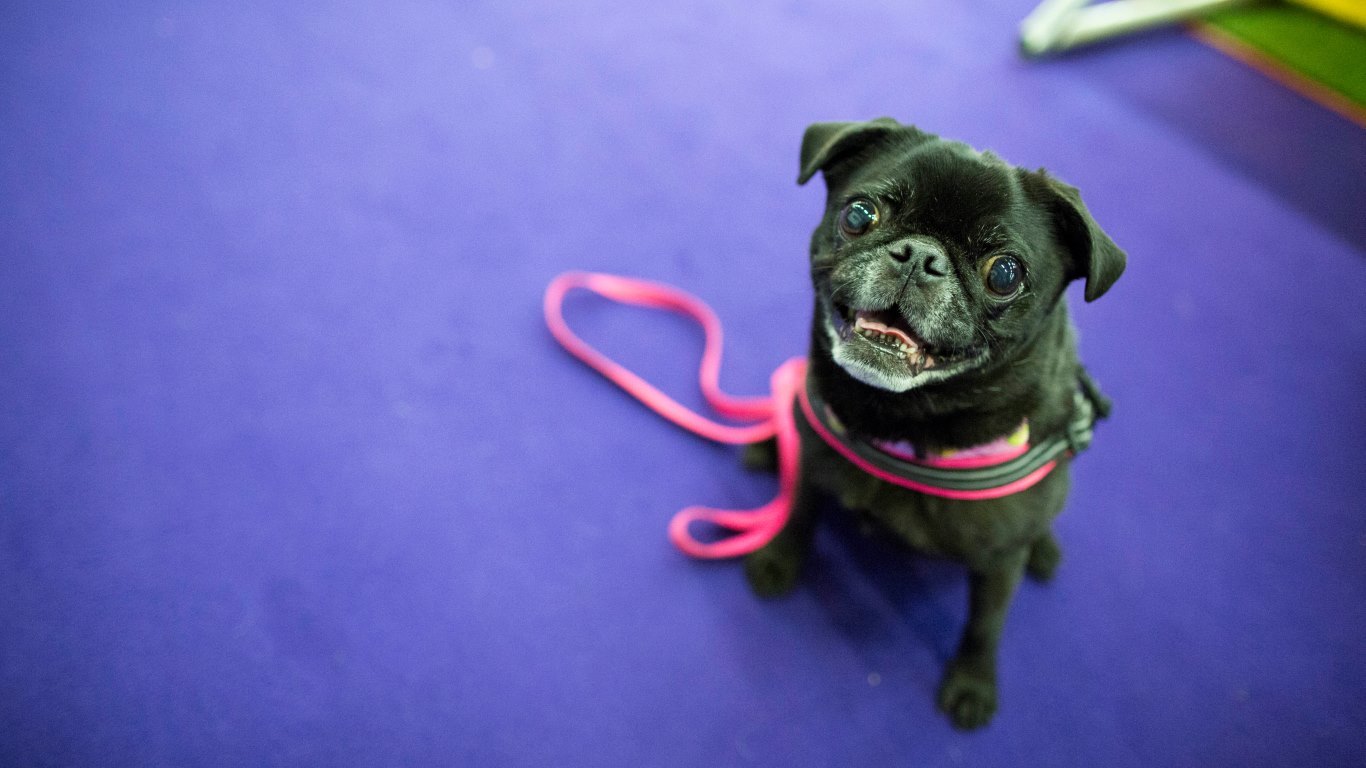
Figures published in the animal charity’s Puppy Report: Sold a pup?’ Exposing the breeding, trade and sale of puppies, estimates 430,000 young dogs come from unlicensed UK breeders each year.
RSPCA’s assistant director of public affairs, David Bowles, said it is unclear if the demand for certain breeds can be met through existing registered UK breeders – with just 70,000 puppies, representing around 10% of those sold annually in Britain, entering the market through legitimate breeders.
He said: “What is clear is that the puppy dealers are one step ahead of the regulators and have already responded to these changing demands and are sourcing these breeds from overseas or large scale commercial puppy farms.”
The report indicates that on top of the unlicensed UK trade, an extra 40,000 dogs per annum are coming into the country from Ireland through Holyhead and Fishguard.
Pups from further afield such as Lithuania, Poland and Hungary – usually entering the UK through Dover and the Channel Tunnel – are thought to top figures of around an extra 30,000 young dogs a year.
Once in the country the puppies are typically stored in pods until buyers are found – as the RSPCA found in Manchester after a five-year investigation.
The dogs are then advertised on the internet and once a buyer is found, they are taken to a fake home to make it appear as if the animal had been bred in that environment.
Fake documentation has also been observed being used by one gang as a way to reassure buyers that the dogs were from healthy and genuine breeders.
Some dealers are thought to have been raking in £2 million a year, or £35,000 a week through the unlicensed trade.
But it is not just the number of puppies coming into the UK and those being reared by unlicensed traders that is causing the RSPCA concern. The charity has seen a marked increase in health problems affecting pups.
In 2015 they received 3,500 calls about puppy farms – a 122% increase on five years ago. Many of these complaints were about puppies becoming ill after purchase, often suffering from conditions such as parvovirus.
One case study in the report notes that of 39 puppies seized by the RSPCA from a commercial dealer, six had to be euthanised immediately, and 25 had congenital defects.
It is thought that around 20% of puppies bought on the internet will die within six months.
Behavioural problems can also occur in farmed dogs by being removed from the mother too soon and exposure to long-distance travel.
The RSPCA hope the findings will cause potential dog owners to pause for thought before purchasing a puppy – and consider sourcing their new animal responsibly.
In a bid to take the lead and bring the puppy trade under control, from illegal trafficking to opportunistic backstreet breeding, the charity is calling for the introduction of new measures.
These include the rolling-out of mandatory licensing for anyone selling puppies in England and laws to combat puppy dealers.
“Legislation has failed to keep up with radical changes in how puppies are bred and sold in the past few decades, particularly the growing importance of internet sales,” the report adds.
“Although legislation on puppy breeding and sales is devolved it is essential that there is a unified approach to this in the UK and across Europe.”
It adds: “Consumers and the animals themselves require nothing less.”//

Enjoy the convenience of having The Sunday Post delivered as a digital ePaper straight to your smartphone, tablet or computer.
Subscribe for only £5.49 a month and enjoy all the benefits of the printed paper as a digital replica.
Subscribe

